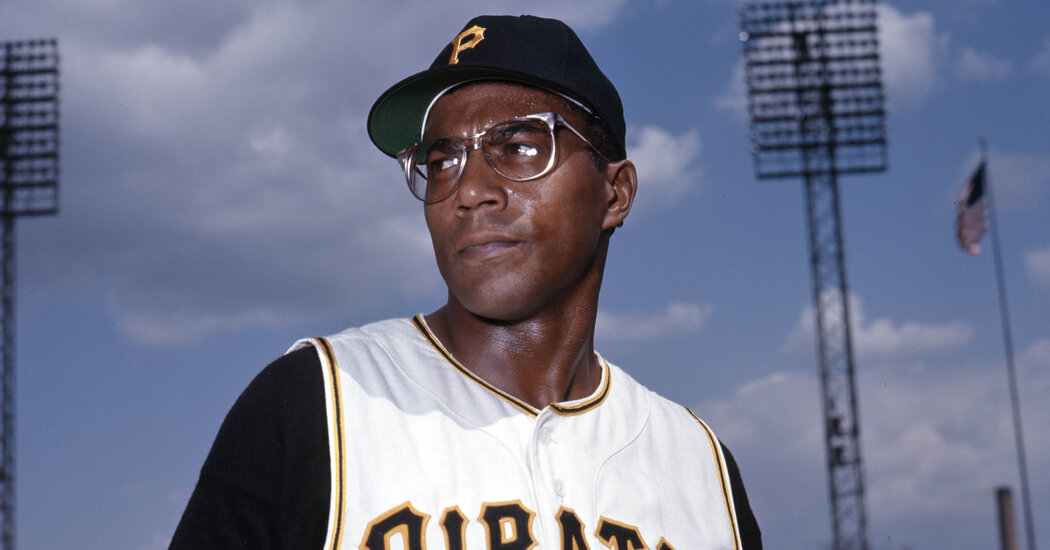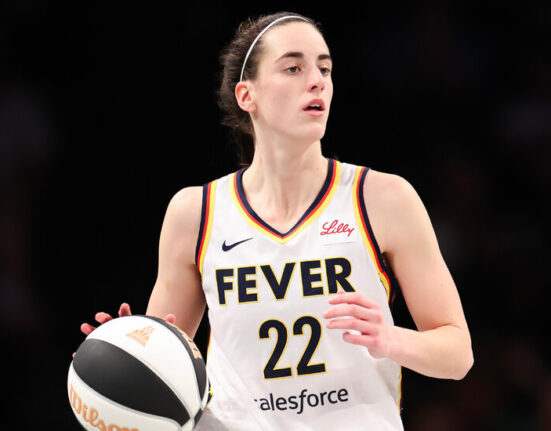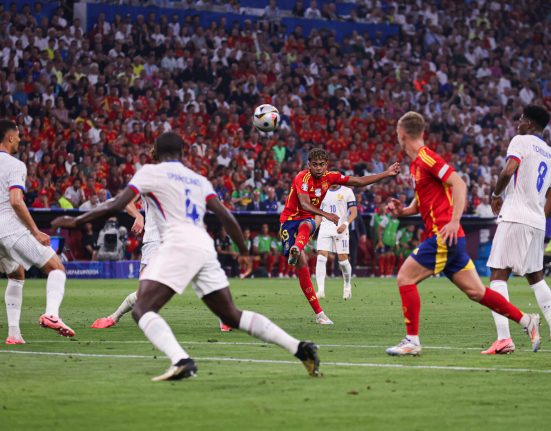Bob Veale, a towering left-handed pitcher for the Pittsburgh Pirates who intimidated National League hitters with his fastball — and his wildness — in the 1960s and early ’70s, died on Jan. 3 in Birmingham, Ala. He was 89.
His death, in a long-term care facility, was confirmed by his sister Valencia Veale Johnson. She did not cite a cause.
For a few seasons, Veale was one of baseball’s most dominating pitchers. He led the league in strikeouts with 250 in 1964, his first full season as a starter, and then struck out 276 in 1965 (a total second only to Sandy Koufax’s 382) and 229 the next season. His earned run average in those seasons never rose above 3.02.
Veale, who stood 6-foot-6 and wore glasses, played on good Pirate teams; his teammates included the outfielders Willie Stargell and Roberto Clemente and the second baseman Bill Mazeroski, who would all be inducted into the Baseball Hall of Fame.
In June 1966, after Veale struck out nine Atlanta Braves in an 11-inning complete-game victory, Stargell, who had hit the game-winning home run, said, “Anybody who could pitch the way he did, for as long as he did, just couldn’t lose.”
He added, “Why, I could even see the blue flame rising from his fastball 360 feet away in left field.”
The Pirate announcer Bob Prince called Veale’s heater a “radio ball” — one that could be heard but not seen.
Veale’s biggest flaw as a pitcher was his control; he led the N.L. in walks four times. That could also inspire fear in batters.
“He didn’t have the best control, but he had great stuff, and he would pitch himself out of trouble,” Art Shamsky, a former Cincinnati Red and New York Met, said in an interview. Veale, he added, was part of an era in which the National League had an abundance of aces, among them Koufax and Don Drysdale of the Los Angeles Dodgers, Bob Gibson and Steve Carlton of the St. Louis Cardinals, and Juan Marichal of the San Francisco Giants.
“They were overpowering and got stronger as the game went on,” Shamsky said.
In 1968, the so-called Year of the Pitcher, Veale’s 13-14 record wasn’t stellar, but his 2.05 E.R.A ranked third in the N.L., after Gibson’s 1.12 and the Giant Bobby Bolin’s 1.99.
Veale pitched through back and elbow injuries in his later seasons and was shifted to the Pirates’ bullpen in 1971, when they won the World Series against the Baltimore Orioles in seven games. He pitched in relief once in the series, giving up a run in two-thirds of an inning.
Robert Andrew Veale Jr. was born on Oct. 28, 1935, in Birmingham, one of 14 children of Robert Veale Sr. and Ollie Belle (Ushry) Veale. His father played briefly for the Homestead Grays, a Negro National League team in Pittsburgh, and worked as a wire drawer for the Tennessee Coal, Iron and Railroad Company. His mother looked after the home.
Young Bob played on sandlots in Birmingham with white friends during the Jim Crow era.
“We didn’t know we were breaking segregation laws,” Veale told Allen Barra, the author of “Rickwood Field: A Century in America’s Oldest Ballpark” (2014), a history of Birmingham’s minor-league stadium. “We weren’t thinking about integrating anything.”
As a teenager, Veale pitched batting practice for Rickwood’s tenants, the minor league Barons and the Negro league Black Barons; worked at the stadium’s concession stand; and dropped numbers into the scoreboard’s inning slots.
He also played for local industrial teams and attended St. Benedict’s College (now Benedictine College) in Atchison, Kan., where he played basketball and baseball. Before he could graduate, as planned, in 1958, the Pirate organization signed him.
Veale largely excelled in Pittsburgh’s minor league system. In 1959, he pitched a no-hitter for the Wilson Tobs of the low-level Carolina League. Three years later, he struck out 22 batters in a game for the Triple A Columbus Jets.
He pitched in 11 games for the Pirates in 1962, then spent all of the 1963 season in the majors as both a starter and a reliever. He finished with a 5-2 record and a 1.04 E.R.A.
In 11 years with Pittsburgh, Veale compiled a record of 116-91 and a 3.06 E.R.A. and was selected for two All-Star games. Pittsburgh sold Veale’s contract to the Boston Red Sox late in the 1972 season, and the Red Sox released him in 1974 after using him sparingly.
In retirement, Veale was a minor-league pitching instructor for the Atlanta Braves and the Yankees. He also retained his ties to Rickwood Field, where for a time he worked as a groundskeeper twice a week and helped Friends of Rickwood, the nonprofit organization that manages the ballpark, by “chit-chatting” about its history to anyone who would listen, said Gerald Watkins, the group’s executive director.
Veale was inducted into the Alabama Sports Hall of Fame in 2006.
In addition to Ms. Veale Johnson, he is survived by his wife, Eredean (Sanders) Veale; his stepdaughter, Felicia Sanders; four other sisters, Lillie Veale Wilson, Emily Veale Ford, Ouida Veale Belcher and Angela Veale Joubert; and two brothers, Russell W. Veale II and Jerry B. Veale.
If batters were wary of Veale’s control, or lack of it, they might have been comforted by the fact that he wore eyeglasses. But one night in May 1967, when the Pirates were playing the Cardinals at Forbes Field in Pittsburgh, a new pair was giving him trouble — the right lens kept popping out.
In the third inning, he removed the glasses and was preparing to proceed without them. But Lou Brock, the Cardinals’ left fielder, refused to step into the batter’s box, even after being ordered to by the umpire Doug Harvey. Brock relented after the Pirates’ pitching coach, Clyde King, brought out an old pair of Veale’s glasses.
“I can’t blame him,” Veale said about Brock afterward. “As a rule, I see six people when I’m not wearing them.”













